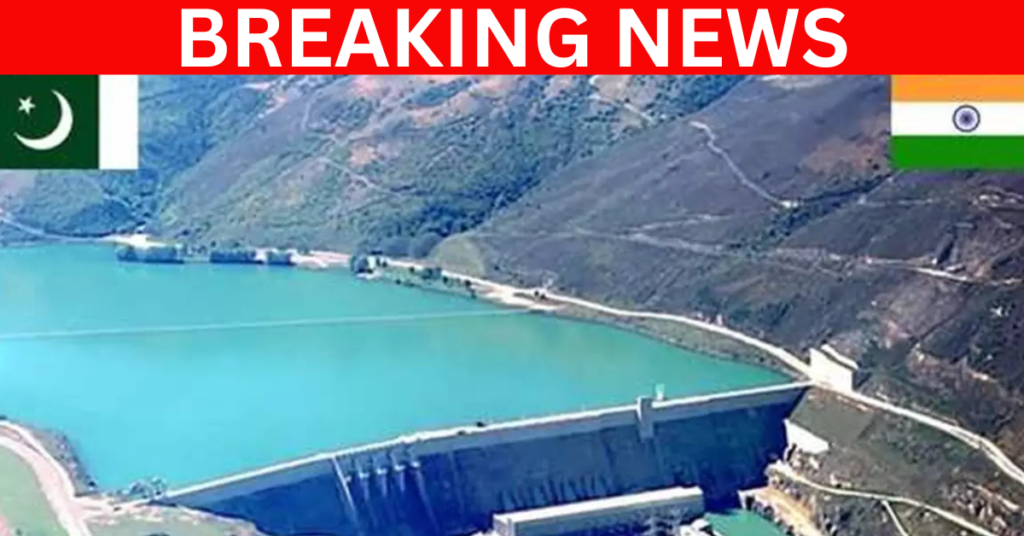पाकिस्तान को सिंधु जल समझौते में ताजे झटके का सामना, तटस्थ विशेषज्ञ ने भारत का समर्थन किया | Pakistan Faces Setback in Indus Water Treaty Dispute, Neutral Expert Supports India
किशनगंगा और रतले परियोजनाओं पर विवाद में पाकिस्तान को नया धक्का, भारत ने विश्व बैंक के निर्णय का स्वागत किया | Fresh Blow to Pakistan as World Bank Appointed Expert Backs India in Kishanganga and Ratle Projects Dispute

Introduction
भारत और पाकिस्तान के बीच सिंधु जल समझौते (IWT) पर विवाद बढ़ता जा रहा है, खासकर किशनगंगा और रतले जलविद्युत परियोजनाओं के मामले में। पाकिस्तान को एक ताजे झटके का सामना तब करना पड़ा जब विश्व बैंक द्वारा नियुक्त तटस्थ विशेषज्ञ ने भारत के पक्ष में फैसला सुनाया। विशेषज्ञ ने कहा कि दोनों देशों के बीच इस विवाद को गुण-दोष के आधार पर सुलझाना चाहिए।
The dispute between India and Pakistan over the Indus Water Treaty (IWT) continues to escalate, particularly regarding the Kishanganga and Ratle hydroelectric projects. Pakistan has received a fresh setback as a neutral expert appointed by the World Bank sided with India. The expert recommended resolving the dispute based on merits and demerits, favoring India’s stance.
ये भी पढें – महाकुंभ मेले में हैरी पॉटर
Details of the Dispute
भारत और पाकिस्तान के बीच सिंधु जल समझौता 1960 में हुआ था, जिसका उद्देश्य सीमा पार नदियों के जल का सही तरीके से उपयोग और प्रबंधन करना था। हालांकि, इन परियोजनाओं को लेकर दोनों देशों के बीच मतभेद लगातार बने हुए हैं। पाकिस्तान ने इन परियोजनाओं पर आपत्ति जताई थी, जबकि भारत ने इसे संधि के तहत सही और वैध बताया।
The Indus Water Treaty, signed between India and Pakistan in 1960, was designed to manage the use and distribution of water from rivers that flow across their borders. However, disagreements over projects like Kishanganga and Ratle have persisted. While Pakistan has raised objections, India has maintained that these projects are in line with the treaty.
हाल ही में, तटस्थ विशेषज्ञ ने दोनों पक्षों की दलीलों पर गंभीरता से विचार करने के बाद भारत के दृष्टिकोण को सही ठहराया। उन्होंने कहा कि विवादों का समाधान गुण-दोष के आधार पर किया जाना चाहिए, जो संधि के अंतर्गत आता है।
Recently, the neutral expert appointed by the World Bank, after carefully considering both sides’ arguments, concluded that the dispute should be settled based on merits, which aligns with India’s position.
ये भी पढें – UP Police की वर्दी के लिए किया ऐसा काम, कि अब हैं सलाखों के पीछे; मददगार भी गिरफ्तार

Pakistan’s Changing Stance
यह ध्यान देने योग्य है कि पाकिस्तान ने 2015 में इस मामले में तटस्थ विशेषज्ञ नियुक्त करने की मांग की थी, लेकिन एक साल बाद उसने इस प्रक्रिया को छोड़कर मामले को हेग स्थित स्थायी मध्यस्थता न्यायालय में ले जाने का निर्णय लिया। पाकिस्तान के इस दोहरे रुख ने स्थिति को और जटिल बना दिया है।
ये भी पढें – महाकुंभ 2025: सीएम योगी और मंत्रिमंडल आज त्रिवेणी में करेंगे सामूहिक स्नान
It is important to note that Pakistan initially requested the appointment of a neutral expert in 2015, but later, in 2016, it shifted its stance and advocated for the dispute to be taken to the Permanent Court of Arbitration in The Hague. This flip-flop by Pakistan has added complexity to the situation.
India’s Reaction
भारत ने इस तटस्थ विशेषज्ञ के फैसले का स्वागत किया है और इसे अपनी सही स्थिति के समर्थन के रूप में देखा है। विदेश मंत्रालय ने कहा कि यह निर्णय भारत के दृष्टिकोण को सही ठहराता है कि किशनगंगा और रतले परियोजनाओं पर उठाए गए सभी सात सवाल संधि के दायरे में आते हैं। भारत संधि की पवित्रता और अखंडता बनाए रखने के लिए प्रतिबद्ध है और इसलिए वह तटस्थ विशेषज्ञ प्रक्रिया में भाग लेने के लिए आगे भी तैयार रहेगा।
India welcomed the decision of the neutral expert, viewing it as a validation of its position. The Ministry of External Affairs stated that the decision upholds India’s stance that all seven questions raised regarding the Kishanganga and Ratle projects fall under the treaty’s provisions. India remains committed to maintaining the sanctity and integrity of the treaty and will continue to participate in the neutral expert process to resolve disputes in accordance with the treaty’s provisions, which do not allow parallel proceedings.
Conclusion
भारत और पाकिस्तान के बीच सिंधु जल समझौते के तहत चल रहे विवाद में तटस्थ विशेषज्ञ का फैसला भारत के पक्ष में आया है। पाकिस्तान का दोहरा रुख और तटस्थ विशेषज्ञों की प्रक्रिया में भारत का विश्वास यह दिखाता है कि इस मुद्दे का समाधान संधि के दायरे में रहकर ही किया जा सकता है।
The neutral expert’s decision in favor of India highlights that the dispute between the two countries over the Indus Water Treaty should be resolved within the treaty framework. Pakistan’s changing stance and India’s continued trust in the neutral expert process demonstrate that the resolution of the issue lies within the treaty’s scope.







5 thoughts on “पाकिस्तान को सिंधु जल समझौते में ताजे झटके का सामना, तटस्थ विशेषज्ञ ने भारत का समर्थन किया”